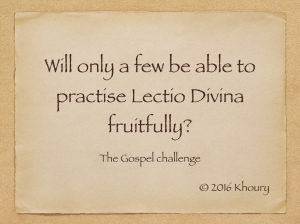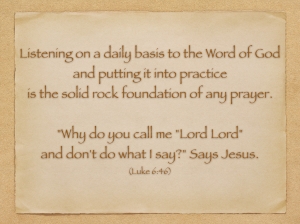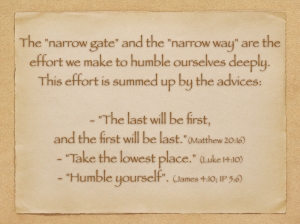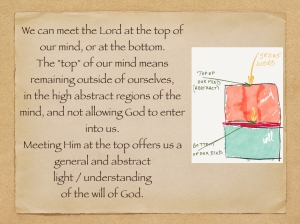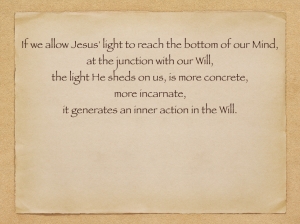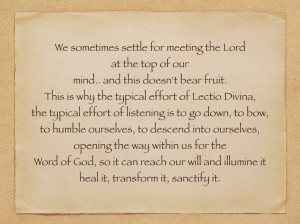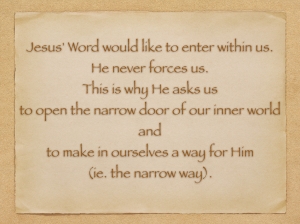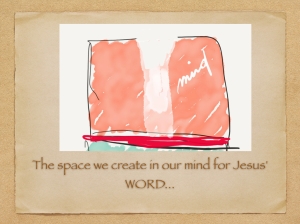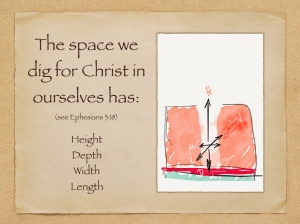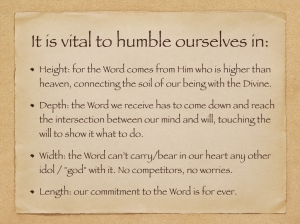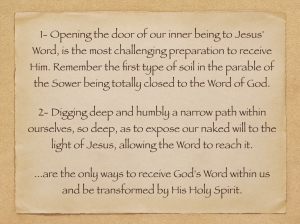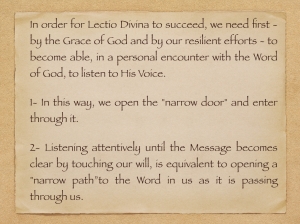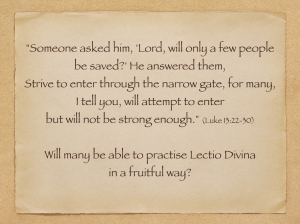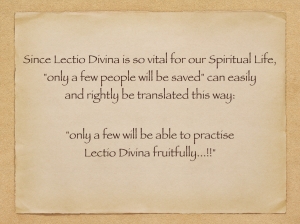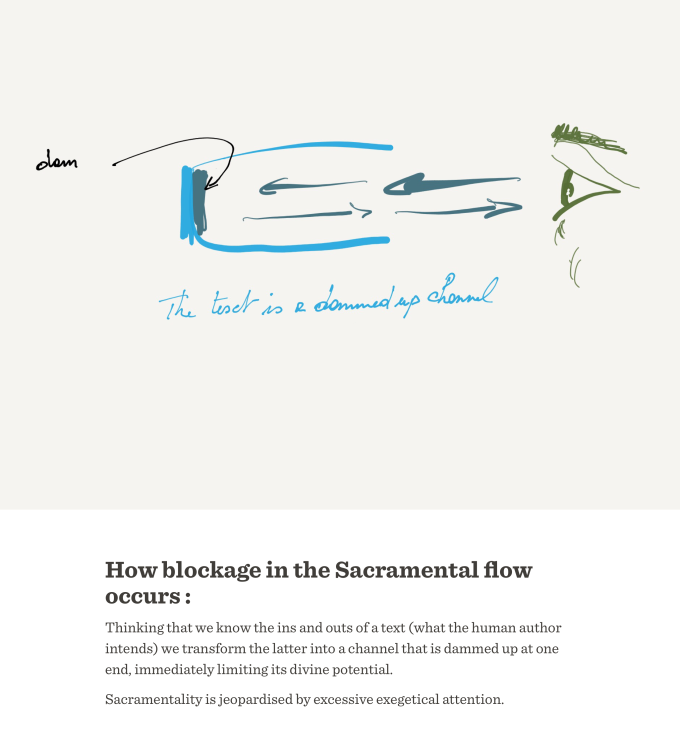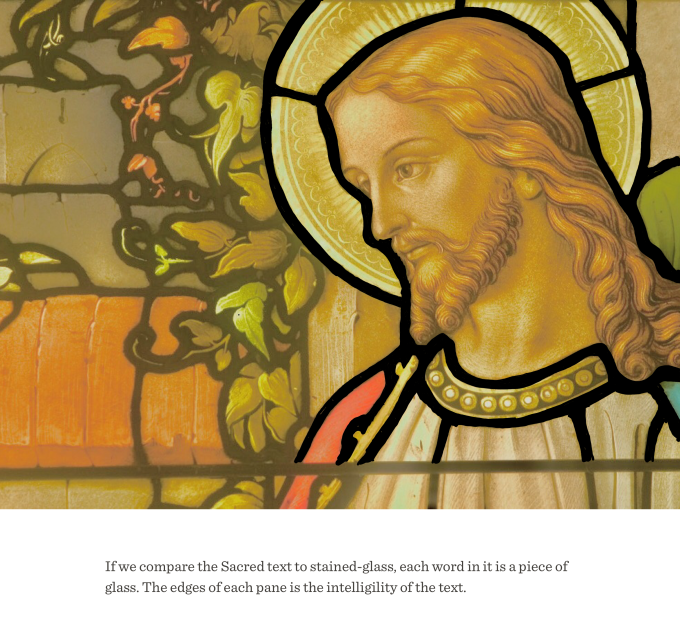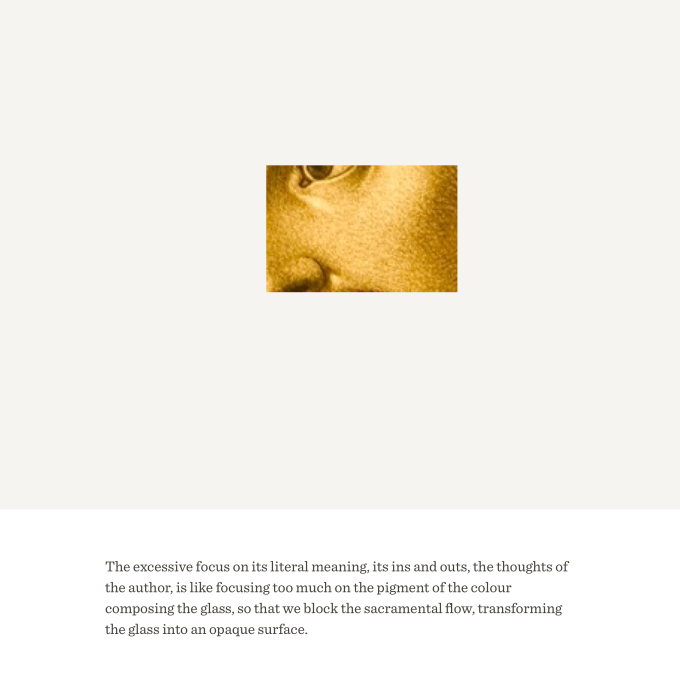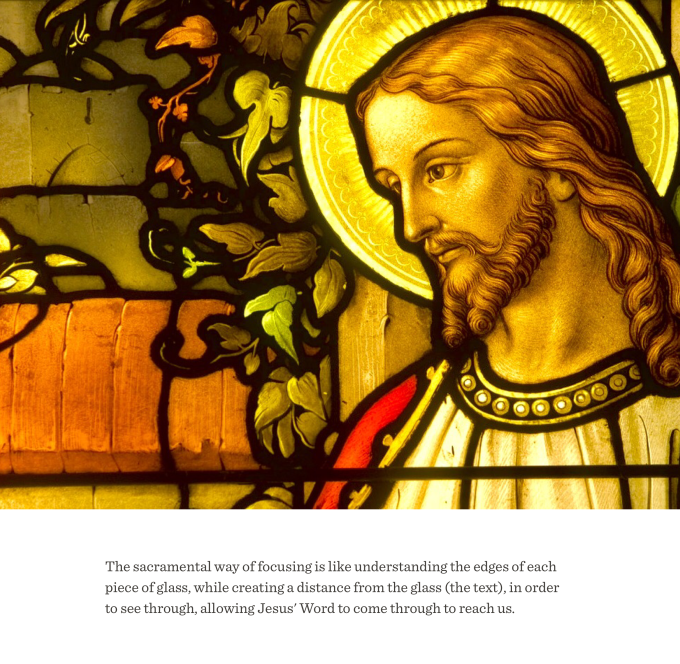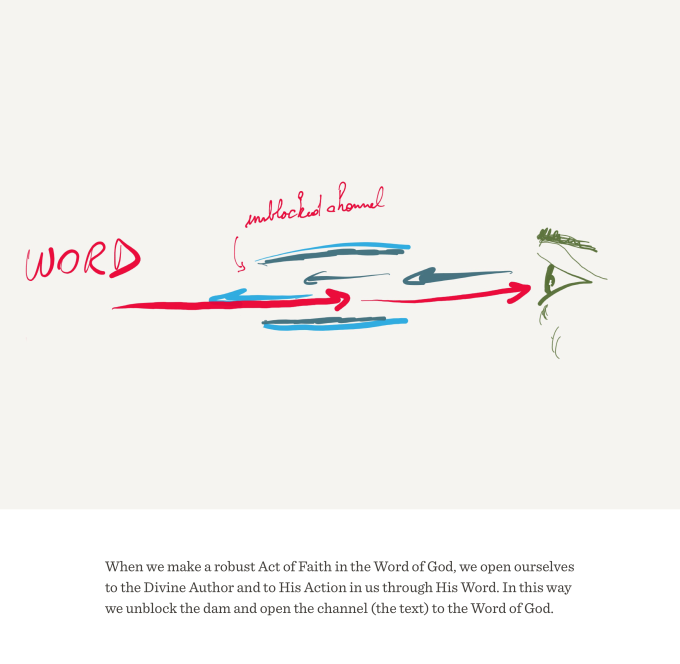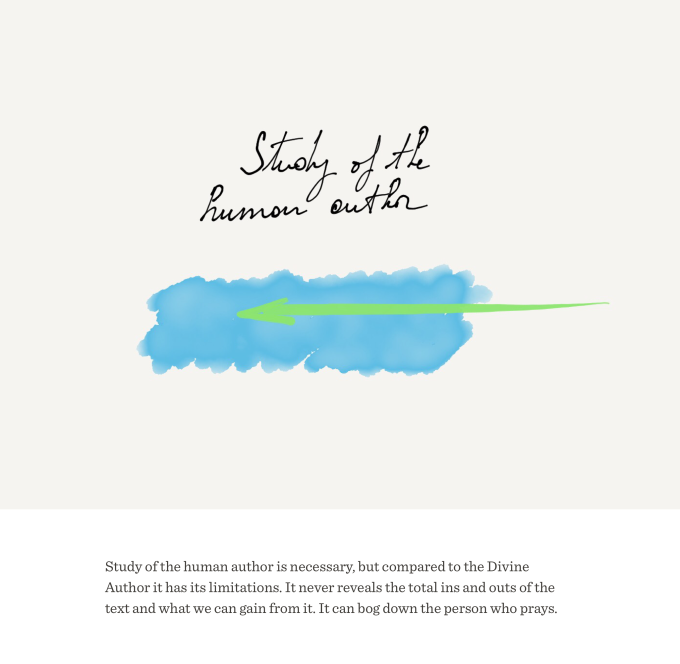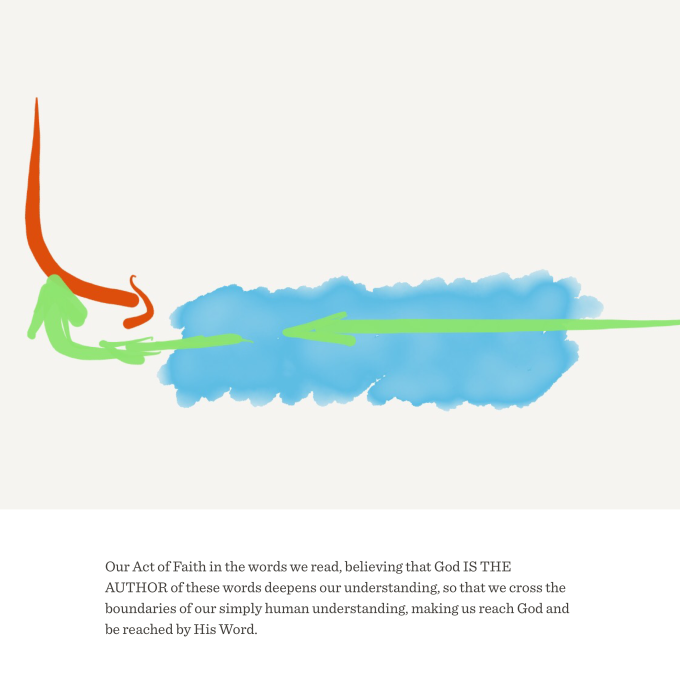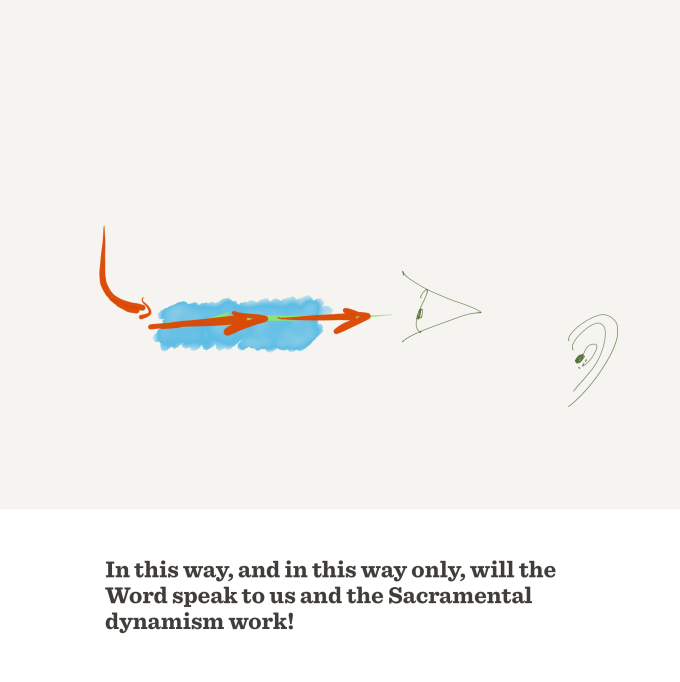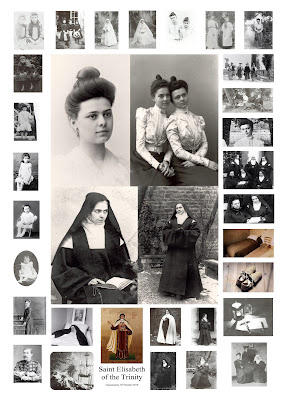Copied
That The Saints Are Not Introduced into The Mysteries Like Us But going back to what has already been contemplated, let us turn our attention according to our means to the rest of the meaning of the Transfiguration, so that the excellence of the Saints in everything and their genuine separation from the flesh and matter may be seen. And let us note that they do not contemplate either creation or Scripture like us in a material or lowly way. They do not acquire the blessed knowledge of God only by sense and appearances and forms, using letters and syllables, which lead to mistakes and bafflement over the judgment of the truth, but solely by the mind [nous], rendered most pure and released from all material mists. Since therefore we want to judge reverently and see clearly and intelligibly the meanings of those things perceived by the senses, we must look carefully to the inerrant knowledge concerning God and divine things and rightly proceed along the straight path. Further Contemplation of the Transfiguration Containing Eighteen Spiritual Interpretations A. Therefore it was said above that through the luminous brightness that shone from the face of the Lord on the mount, the thrice-blessed apostles were secretly led in an ineffable and unknowable manner to the power and glory of God which is completely incomprehensible to every being, for they learnt that the light that appeared to their senses is a symbol of what is hidden and beyond any manifestation. For as the ray of the light that came to pass here overwhelmed the strength of the eyes and remained beyond their grasp, so also their God transcends all the power and strength of the mind and leaves no kind of trace for the mind to experience. The white garments teach, in a divinely fitting way, at one and the same time both the magnificence that lies in creatures proportionately to the logoi according to which they have come into being and the mysterious revelation found in the understanding of the words of Holy Scripture, so that the written power in the Spirit and the wisdom and knowledge manifested together in creatures are displayed together for the knowledge of God, and through them again he is proportionately manifested. Through Moses and Elijah, who were with Him on either side, they are taught many various conceptions which are put forward as figures of mysteries: through true contemplation of them they found ways of knowing. It is this that must now be examined. 1. And first they received through Moses and Elijah the most reverent notion about how the legal and the prophetic word had always to be present with God the Word, as they are and proclaim from Him and concerning Him and they are established around Him. 2. Then they are taught through them about wisdom and kindness dwelling with Him. It is in accordance with wisdom that the word is declaratory of things made and prohibitory of things not made, and of this Moses is the type, for we believe the grace of law-giving to belong to wisdom. And it is in accordance with kindness that the word invites and causes to return to the divine life those who have slipped away from it, and of this Elijah is the type, through himself manifesting the complete prophetic gift. For the conversion through love for humankind of those who have erred is a characteristic of divine kindness, and the heralds of this we know as the prophets. Continued Part Two
John Sanidopoulos
That The Saints Are Not Introduced into The Mysteries Like Us
But going back to what has already been contemplated, let us turn our attention according to our means to the rest of the meaning of the Transfiguration, so that the excellence of the Saints in everything and their genuine separation from the flesh and matter may be seen. And let us note that they do not contemplate either creation or Scripture like us in a material or lowly way. They do not acquire the blessed knowledge of God only by sense and appearances and forms, using letters and syllables, which lead to mistakes and bafflement over the judgment of the truth, but solely by the mind [nous], rendered most pure and released from all material mists. Since therefore we want to judge reverently and see clearly and intelligibly the meanings of those things perceived by the senses, we must look carefully to the inerrant knowledge concerning God and divine things and rightly proceed along the straight path.
Further Contemplation of the Transfiguration Containing Eighteen Spiritual Interpretations
A. Therefore it was said above that through the luminous brightness that shone from the face of the Lord on the mount, the thrice-blessed apostles were secretly led in an ineffable and unknowable manner to the power and glory of God which is completely incomprehensible to every being, for they learnt that the light that appeared to their senses is a symbol of what is hidden and beyond any manifestation. For as the ray of the light that came to pass here overwhelmed the strength of the eyes and remained beyond their grasp, so also their God transcends all the power and strength of the mind and leaves no kind of trace for the mind to experience. The white garments teach, in a divinely fitting way, at one and the same time both the magnificence that lies in creatures proportionately to the logoi according to which they have come into being and the mysterious revelation found in the understanding of the words of Holy Scripture, so that the written power in the Spirit and the wisdom and knowledge manifested together in creatures are displayed together for the knowledge of God, and through them again he is proportionately manifested. Through Moses and Elijah, who were with Him on either side, they are taught many various conceptions which are put forward as figures of mysteries: through true contemplation of them they found ways of knowing. It is this that must now be examined.
1. And first they received through Moses and Elijah the most reverent notion about how the legal and the prophetic word had always to be present with God the Word, as they are and proclaim from Him and concerning Him and they are established around Him.
2. Then they are taught through them about wisdom and kindness dwelling with Him. It is in accordance with wisdom that the word is declaratory of things made and prohibitory of things not made, and of this Moses is the type, for we believe the grace of law-giving to belong to wisdom. And it is in accordance with kindness that the word invites and causes to return to the divine life those who have slipped away from it, and of this Elijah is the type, through himself manifesting the complete prophetic gift. For the conversion through love for humankind of those who have erred is a characteristic of divine kindness, and the heralds of this we know as the prophets.
3. Or Knowledge and Education. Knowledge is the source in human beings of the understanding of good and evil. "For I have set before your face", he says, "life and death" (Deut. 30:19), the one you are to elect, the other to flee, and lest through ignorance you disguise the worse with the good, Moses proclaims what is to be done, prefiguring in himself the symbols of the truth. Education is needed for those who without restraint do what is contrary and indiscriminately mix what should not be mixed. In Israel the great Elijah was their teacher, the scourge of indifference, who, like reason, led to understanding and sense the mindlessness and hardness of those who were utterly addicted to evil.
4. Or Ascetic Struggle and Contemplation. Ascetic struggle destroys evil and through the demonstration of the virtues cuts off from the world those who are completely led through it in their disposition, just as Moses led Israel out of Egypt and educated her persuasively through the divine laws of the Spirit. Contemplation seizes them as it were from matter and form, like Elijah on his chariot of fire, leading them to God through knowledge and uniting them with Him, so that they are no longer weighed down by the flesh because of the setting aside of its law, nor burning with zeal for the fulfillment of the commandments, because of the grace of poverty of spirit mixed with all real virtues.
5. Or again they learnt from the Word the mysteries of marriage and celibacy: through Moses, how one is not prevented by marriage from being a lover of divine glory; and through Elijah, how he remained completely pure from any marital intercourse, and how the Word and God proclaims that those who direct themselves in these things by reason according to the laws that are divinely laid down concerning them are made to enter into Himself in a hidden way.
6. Or Life and Death: through them they are faithfully assurred the Word is Lord.
7. Or they learnt, too, through these that everyone lives to God and no one at all is dead with Him, but that one kills oneself through sin and, through the willing turning towards the passions, cuts oneself off from the Word.
8. Or again they received illumination that the types of the mysteries exist in relation to and are referred to the Word, which is the truth, and are brought into agreement with It, as the beginning and end of the legal and prophetic work.
9. Or everything that is after God and has come into being from God, that is the nature of beings and time, these appear together, so far as is possible, with God who appears as cause and maker. And of these, the type of time is Moses, not only as the teacher of time and of number in accordance with time (for he was the first to count time from the creation of the world), or as one who instituted temporal worship, but also as not entering bodily into rest with those whom he had instructed before the divine promise. For such is time, not overtaking or accompanying in movement those whom it is accustomed to escort to the divine life of the age to come. For it has Jesus as the universal successor of time and eternity. And if otherwise the logoi of time abide in God, then there is manifest in a hidden way the entry of the law given through Moses in the desert to those who receive the land of possession. For time is eternity, when movement is stilled, and eternity is time, when it is measured by movement, since, by definition, eternity is time deprived of movement, and time is eternity measured by movement. Elijah, however, is the type of nature, not only as guarding inviolate the logoi within himself, and keeping the intention according to inclination in them free from any change due to passion, but also as educating in judgment, like the natural law, those who use nature unnaturally. For such is nature, punishing as much those who are set to corrupt it, as those who aim to live contrary to nature, who do not acquire the whole power of nature naturally, and cause its soundness to deteriorate, and are therefore fit to be punished, since they thoughtlessly and mindlessly provide themselves with a deficiency of being through their inclination towards non-being.
10. Equally anyone who says that the intelligible and sensible creation of the fashioner Word is understood through Moses and Elijah does not utterly stray from the truth. Of these Moses offers the meaning [logos] of the sensible, that is subject to change and corruption, as his history of it clearly shows, declaring its origination and death. For the sensible creation is such as to have a beginning known in coming to be, and to look for an end determined by destruction. Elijah [offers the meaning] of the intelligible, neither declaring its coming to be in his account of it, as if it had been generated, nor defining it as looking for corruption through death, as if it were to die. For the intelligible creation is such as to have no beginning of its coming to be that is manifest to human beings, and if it comes to be and commences and passes from non-being to being, it does not await an end of its existence defined by corruption. For it is naturally imperishable, having received this from God who willed to create it such.
B. Lest I appear to any to be more curious than is necessary, another great and divine mystery, I think, is revealed to us in the divine Transfiguration, more radiant than what I have just said. For I think that the divinely-fitting events that took place on the mount at the Transfiguration secretly indicate the two universal modes of theology: that is, that which is pre-eminent and simple and uncaused, and through sole and complete denial truly affirms the divine, and fittingly and solemnly exalts its transcendence through speechlessness, and then that which follows this and is composite, and from what has been caused magnificently sketches out [the divine] through affirmation. By these, so far as it is within human capacity, the knowledge that hovers above concerning God and the divine leads us through symbols naturally fitted to us to both these modes [of theology], through reverent understanding of both kinds of beings establishing their logoi, and teaching that every symbol that transcends the senses belongs to the first mode [of theology], and educating us that the accumulated mighty works of the sensible order belong to the second. For from the symbols that transcend the senses we believe only the truth that transcends reason and mind, barely daring to investigate or to form an idea of what and how and of what kind it is, and where and when, avoiding what is irreverent in the undertaking. And from those things on the sensible level, so far as is possible to us, from thought alone we plainly form conjectures concerning the knowledge of God and say that He is all that we can deduce from the fact that He is the cause of all that he has made.
C. Let us consider whether in each of the above-mentioned forms [of theology] the symbol is really and wisely constituted in accordance with the divine Transfiguration of the Lord. For He accepted to be unchangeably created in form like us and through His immeasurable love for humankind to become the type and symbol of Himself, and from Himself symbolically to represent Himself, and through the manifestation of Himself to lead to Himself in His complete and secret hiddenness the whole creation, and while he remains quite unknown in His hidden, secret place beyond all things, unable to be known or understood by any being in any way whatever, out of His love for humankind He grants to human beings intimations of Himself in the manifest divine works performed in the flesh.
D. The light from the face of the Lord, therefore, conquers the human blessedness of the apostles by a hidden apophatic theology. According to this [light], the blessed and holy Godhead is by essence beyond ineffability and unknowability and countlessly raised above all infinity, leaving not the slightest trace of comprehension to those who are after it [sc. the Godhead], nor disclosing any idea to any being as to how and how far the same is both monad and triad, since the uncreated is not naturally contained by creation, nor is the unlimited comprehended by what is limited.
E. The affirmative mode [of theology] can be differentiated into those concerned with activity, with providence and with judgment. The mode [concerned with activity], starting from the beauty and magnitude of creatures, introduces the explanation that God of all is fashioner, this shown through the radiant garments of the Lord, which the Word shows to be the manifestation of creatures.
Page 5 of 5Continued from Part Five
F. The mode concerned with providence signifies through Moses how out of love for humankind it is raised above those who are embroiled in evil and error and wisely distinguishes among human beings the ways of departure from the material and corruptible and bodily to the divine and immaterial and bodiless, and with understanding implants the divine laws.
G. The mode of judgment suggests through Elijah how judgment punishes by word and deed those who deserve it, and deals with others suitably in each case in accordance with the underlying matter and kind of virtue or evil. For according to this scriptural passage, it is from things seen beforehand that Moses and Elijah sketch figuratively divine matters in the best way possible, each in a way appropriate to the mode of spiritual contemplation.
H. From what they [Moses and Elijah] said to the Lord and their speaking of the exodus that was about to be fulfilled in Jerusalem, they were taught not only about the accomplishment of the mysteries proclaimed beforehand and by the law and the prophets, but equally they learnt that the precise measure of the ineffable will of God concerning the universe is not to be apprehended by any being at all, nor the measure of the divine economies consequent on that will, nor yet the measure of his great providence and judgment, through which the universe is led in an orderly manner towards the end that is known beforehand by God alone. Of this no one knows its nature, or how it will be, or in what form or when, it is simply known that it will be, and then only to those who have purified their souls through the virtues and have inclined the whole of their mind wholly towards the divine. To them there is granted, as has been said, an apprehension of providence and judgment of the whole nature of visible things, and the modes through which the end of this present harmony naturally consist, and is well-nigh expressly proclaimed.
From Maximus the Confessor by Andrew Louth (Routledge: London 1999) pp. 128-134.





